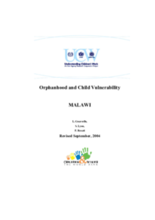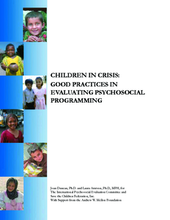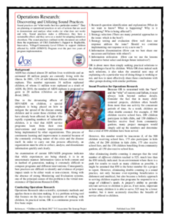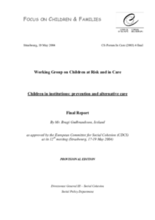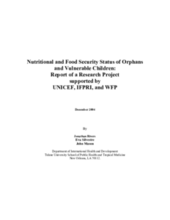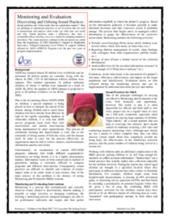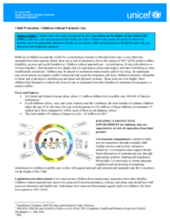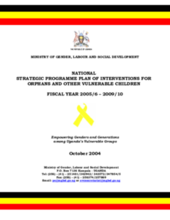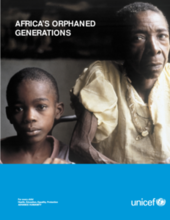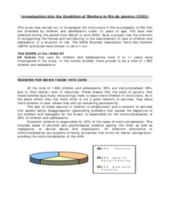Displaying 511 - 520 of 565
A report on orphans and vulnerable children in Malawi. It examines how orphanhood increases vulnerability though decreased access to formal schooling and increased exposure to child labor. Includes detailed statistical tables.
A comprehensive and detailed template for development and evaluation of psychosocial support projects. Emphasis on raising awareness of cultural and ethical issues associated with psychosocial interventions.
Sound practices culled from the experiences of CRS Zimbabwe’s Support to Replicable, Innovative, Village/Community-Level Efforts to support children affected by AIDS (STRIVE) Program on Operations Research.
This report contains an overview of alternative care in Europe, the effects of institutions on children, statistical information and the different approaches of child protection systems within Europe. It includes reforming institutional care, foster care, post-care support, and the role of the social worker.
A report on the nutritional status of orphans in sub-Saharan Africa. Seeks to understand the relationship between child vulnerability and food security. Contains conclusions and recommendations relevant for future monitoring initiatives.
This brief outlines Monitoring and Evaluation sound practices of “spot checking” when costs can be prohibitive and the use of “station days”, a participatory method to collect accurate data on children.
A brief fact sheet on the multilevel support needs of children without parental care. Includes a brief section on statistical data and examples of UNICEF action in several countries around the world.
The NSPPI provides overall guidance to implementers to mitigate the impact of orphan hood and other vulnerabilities among children in Uganda.
This paper reports on the life circumstances of today’s orphaned children in Africa with new data and fresh analyses. The report presents a strategy for ensuring that all of Africa’s orphaned children have a safe, healthy and well-educated childhood, establishing the foundation for a productive adult life and for their countries’ overall development. Therefore, this paper encourages hope in the face of an epic disaster as it offers the possibility of change for those already orphaned and for the generation to come.
This research study provides statistical information on institutional care of children under the age of 12 in Rio de Janeiro, Brazil. Interviews with institutions and children are conducted, and reasons for separation from family, length of time in care, status of family relationship, religious orientation and financial support of the institutions are highlighted.

